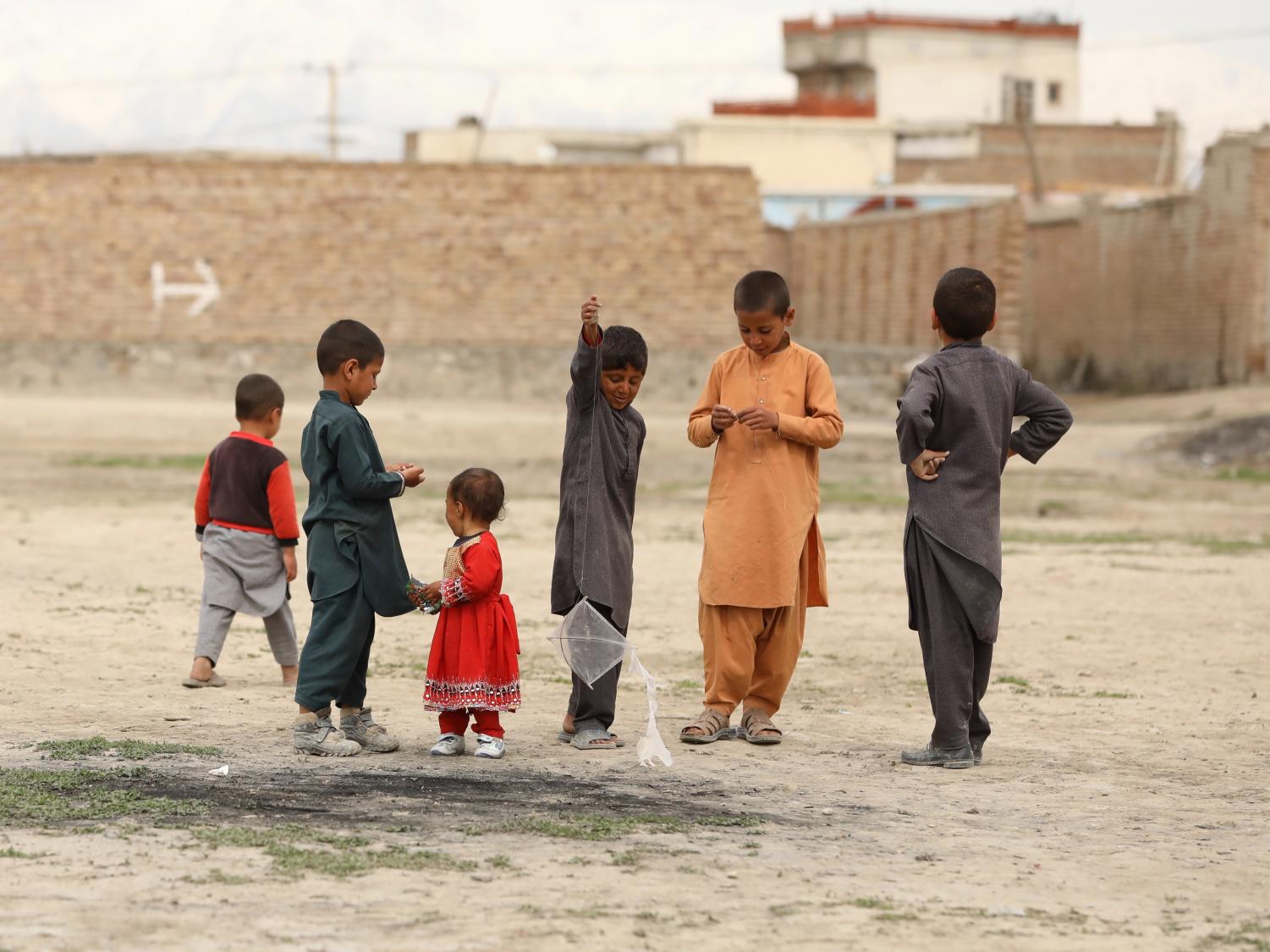West Michigan orgs are leading efforts to resettle Afghan refugees. You can help
September 26, 2021
Michigan nonprofits Bethany Christian Services and Samaritas are assisting nationwide efforts to support the 50,000 Afghans who have arrived in the U.S. since the Taliban’s takeover. The two faith-based organizations will be working with local churches and community partners to resettle at least 380 Afghan allies and refugees in West Michigan over the next several weeks.
“We’ve been very, very busy the last few weeks, gearing up to be able to serve more Afghan refugees and allies as they come into the U.S.,” Vice President of Refugee and Immigrant Family Services at Bethany Kristi Gleason said during a press call. Bethany will resettle more than 250 Afghan allies and refugees in Grand Rapids, Holland, Kalamazoo and Muskegon.
According to Bethany’s Michigan director of Refugee and Immigrant Services, Susan Kragt, the refugees will mainly consist of Afghans who worked with the U.S. military on the ground and groups vulnerable to the Taliban, such as journalists, political activists, aid workers and women.
Kragt said that the organization is expecting to welcome more family units than is typical.
Gleason confirmed to members of the community that all the incoming refugees and allies have undergone thorough vetting procedures by U.S. intelligence, law enforcement and counterterrorism units.
“We can be both a welcoming and safe society,” Gleason said.
Samaritas commented on safety concerns as well.
“This is a group of people who had the most careful vetting possible,” co-chair of the Samaritas Afghan Refugee Network Father Bill Danaher told Chimes. “At a practical level, there’s no credible threat.” To reduce stigmatization and reframe perceptions, Danaher said many people now prefer to use the term “New Americans” instead of “refugees.”
Bethany’s faith convictions play a significant role in propelling them to take action during this crisis.
“It’s our faith that compels us and calls us to love our neighbor as ourselves,” Kragt stated.
Samaritas holds similar Christian values. The organization launched its Afghan Refugee Network as a direct response to the Afghanistan crisis. This network will be heading the collaborative efforts of corporate, civic and community leaders to resettle the currently approved 220 refugees,130 of which will be settled in Grand Rapids. The others will be resettled across Southeast Michigan.
“We believed that it was a moral obligation for two reasons,” Danaher said. “Welcoming the stranger is part of what it means to be a Christian … and I feel like there is a national need for a moral imperative of the United States to protect those that protected us.”
Working independently from one another, Bethany and Samaritas, along with their partners, will offer the incoming refugees housing and other necessities, such as education, transportation, employment and mentoring. According to Kelli Dobner, co-chair of ARN, the main goal is to provide the refugees “all of those things to come along aside a family on their road to self-sufficiency.”
Most refugees are coming in a short amount of time and with less welfare support than usual, presenting new challenges. This is due to a vast majority of them being on humanitarian parole status due to an abrupt evacuation.
Bethany is urging Congress to fulfill the Biden administration’s request to create a pathway to permanent residency and eventual citizenship for the Afghan refugees.
The co-chairs of the ARN are working to alert local representatives about the need for increased public assistance.
The Afghan refugee crisis is an issue that receives support from both Democrats and Republicans.
Individuals can help, too. “We’re asking the people of West Michigan to help in any way possible over the next several weeks,” Kragt said during the Bethany press call.
Temporary housing is the immediate need because of housing scarcity, but volunteers and donations are right behind on the list.
Samaritas is in search of families, churches and groups that are willing to co-sponsor Afghan families. They encouraged Calvin students to consider the opportunity to make an impact.
“It takes a village; it takes a community … to surround a family with the resources they need to feel welcomed and successful,” Dobner said.
Both organizations have already started to receive abundant support from their many community partners.
Treetops Collective is one of the local nonprofits that will assist Bethany on the ground with the resettlement logistics.
According to Executive Director and Co-Founder Tarah Carnahan, the nonprofit will host mental health sessions with the incoming refugees and current Syrian and Afghan residents who may be re-traumatized.
Treetops also intends to have an Afghan leader in Concentric, its core program, who will use her own experiences to be a friend, ally and mentor to 20 young Afghan women.
The collective is willing to host a similar program for teen boys and men if they can find the appropriate male leaders, Carnahan said. The nonprofit will also assist with other basic needs like childcare and transportation.
“This is an opportunity to rise to the occasion and to remember the roots of who we are and what we are capable of,” Carnahan said, addressing West Michiganders. “I sincerely believe that our community is better when we’re more diverse … my hope is that people welcome them here to stay.”
Opportunities to donate or volunteer for these organizations can be found on their websites or at the links below.
Bethany Christian Services: https://bethany.org/campaigns/help-afghan-refugees
Samaritas: https://www.samaritas.org/refugee-crisisSamaritas is also looking for new hires. They encouraged Social Work majors to apply. Learn more at https://www.samaritas.org/About-Samaritas/Samaritas-Careers
Treetops: https://treetopscollective.org. Treetops is looking for cross-cultural partners for their teen program.
This story has been updated to include a link to Treetops.
